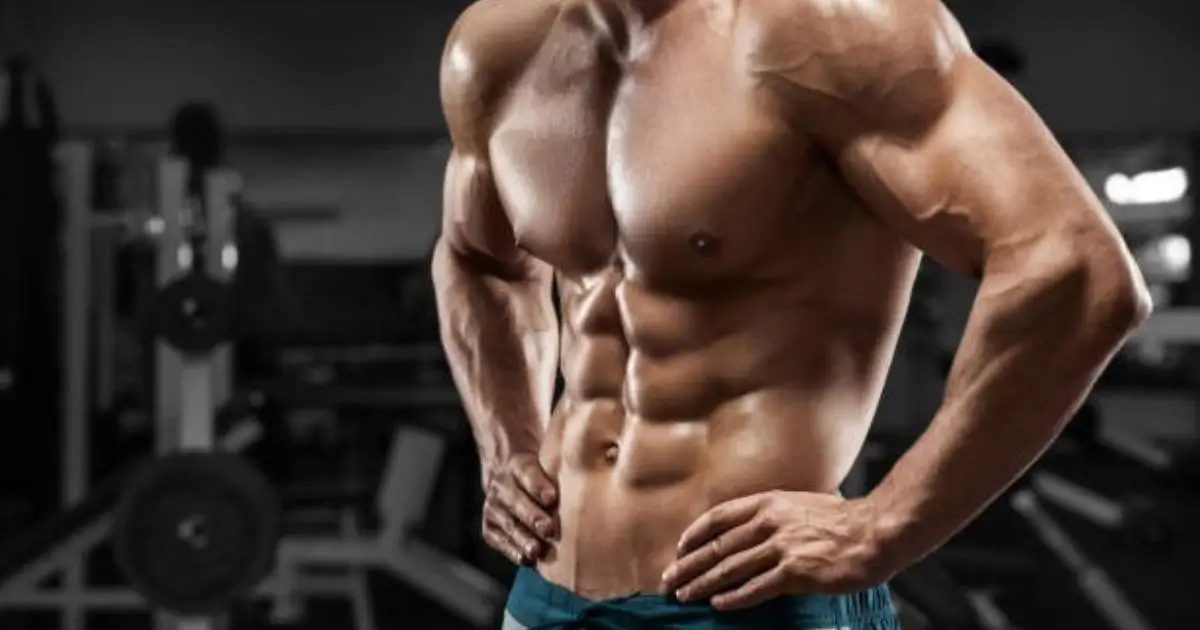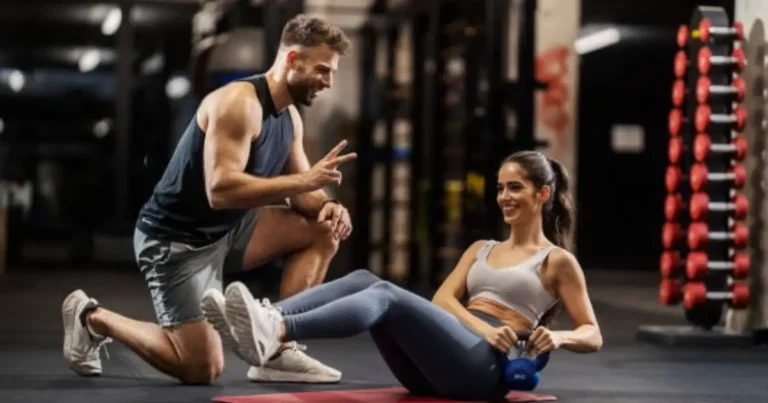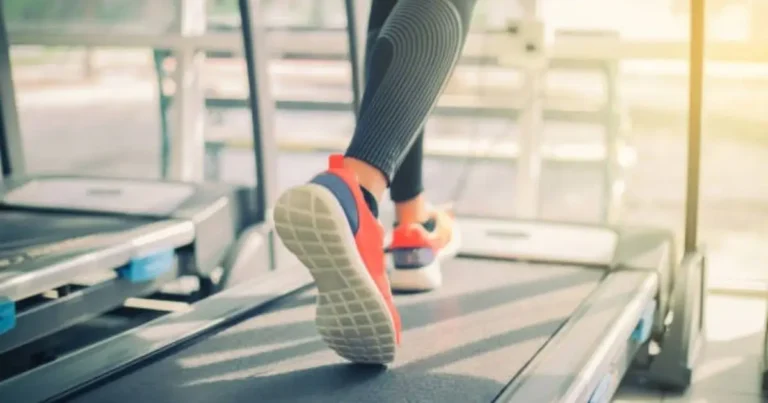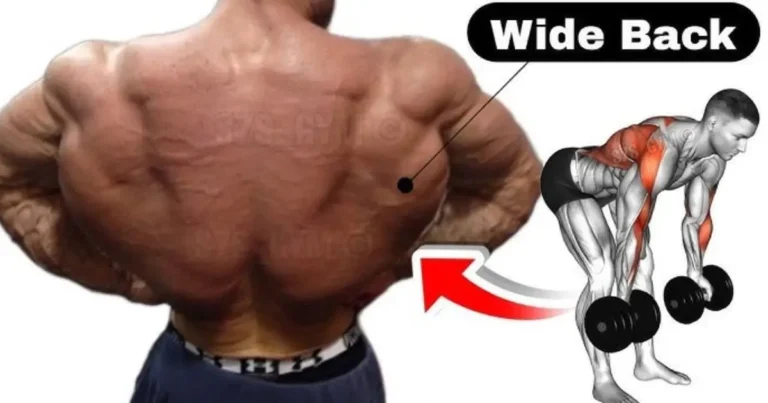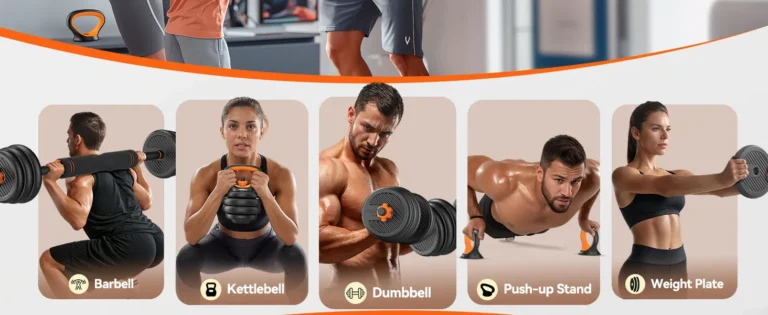Ab Workout Bench Guide: How to Choose & Use One Effectively
Looking to take your core training to the next level? An ab workout bench might be exactly what you need to amplify your abdominal exercises and finally achieve those coveted six-pack abs. Whether you’re a fitness enthusiast setting up a home gym or simply looking to diversify your core routine, an adjustable ab bench can be a game-changing addition to your workout arsenal.
In this comprehensive guide, we’ll explore everything you need to know about selecting the best ab workout bench for your specific needs, how to use it properly, and the most effective exercises to maximize your results. From decline sit-ups to Russian twists, we’ll cover all the ways this versatile piece of equipment can transform your core training regimen.
Table of Contents
What Is an Ab Workout Bench?
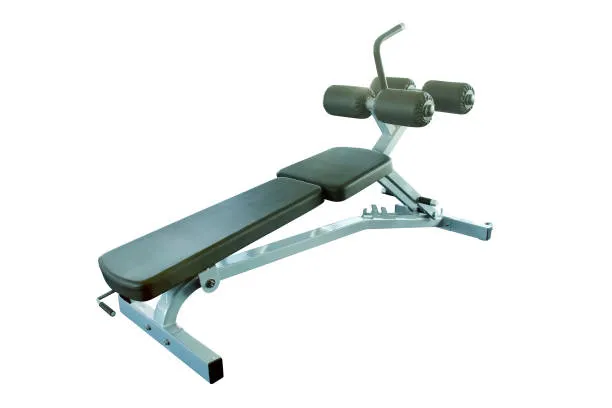
An ab workout bench (sometimes called a decline bench or slant board) is a specialized piece of fitness equipment designed specifically to target your abdominal muscles. Unlike flat weight benches, ab benches typically feature:
- An angled or adjustable decline position
- Padded foot rollers or ankle supports
- Comfortable back padding
- Varying degrees of incline/decline adjustability
- Compact, foldable designs (in many home versions)
The primary benefit of using an ab workout bench is the ability to perform exercises with greater range of motion and intensity than floor exercises alone. The declined position uses gravity to increase resistance, making your core work harder during each repetition.
Types of Ab Workout Benches
Not all ab benches are created equal. Understanding the different types will help you choose the best ab workout bench for your specific needs:
1. Fixed Decline Ab Benches
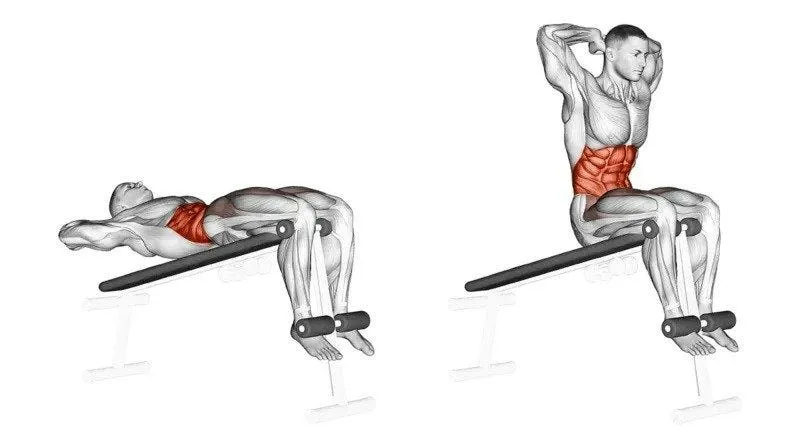
These basic models offer a single, non-adjustable angle (typically 30-45 degrees).
Pros:
- Generally more affordable
- Simpler construction means fewer parts that could break
- Often more compact for storage
Cons:
- Limited exercise variety
- No progression options as strength improves
- May not accommodate users of all heights comfortably
2. Adjustable Ab Benches
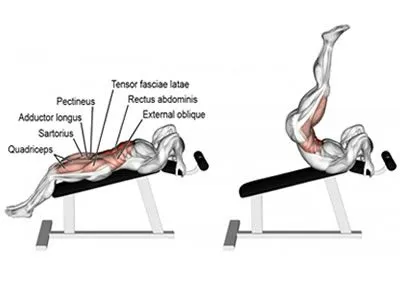
The most versatile option, adjustable ab benches allow you to modify the angle of decline.
Pros:
- Multiple decline positions (typically 3-5 settings)
- Allows progressive difficulty as you get stronger
- Often convertible to flat position for other exercises
- Better accommodates different user heights and fitness levels
Cons:
- Higher price point
- More moving parts could mean less durability
- Usually requires more storage space
3. Multi-function Ab Workout Stations
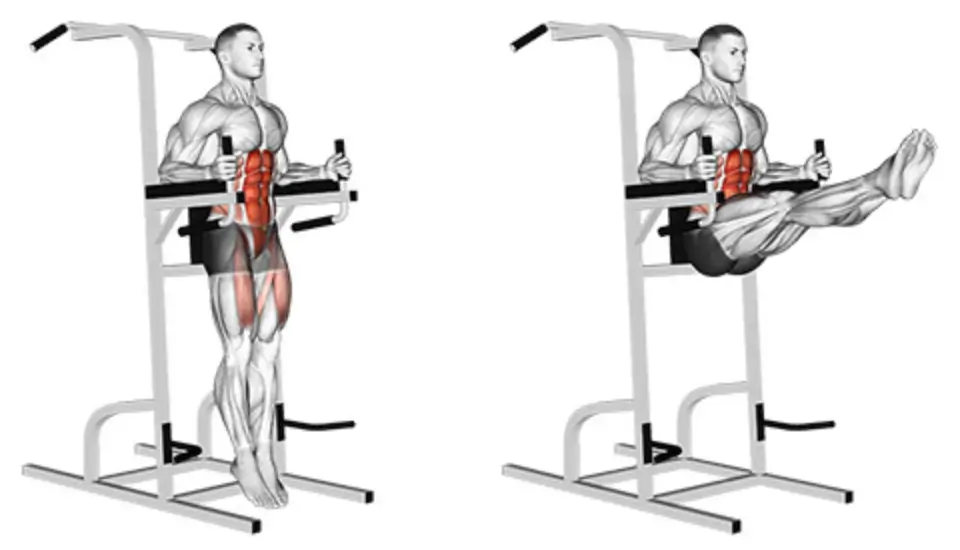
These comprehensive units combine an ab bench with other workout stations.
Pros:
- All-in-one solution for total body workouts
- Often includes pull-up bars, dip stations, or leg developers
- Space-efficient compared to multiple separate pieces
Cons:
- Significantly higher cost
- Requires dedicated workout space
- Quality can vary widely between manufacturers
Key Features to Consider When Choosing an Ab Workout Bench
When shopping for the best ab workout bench, pay attention to these critical features:
Sturdiness and Weight Capacity
A quality ab bench should feel solid without wobbling. Look for:
- Steel frame construction
- Weight capacity of at least 250-300 lbs
- Wide base for stability during intense movements
- Secure locking mechanisms for adjustable parts
Padding Quality
Comfort matters during longer workout sessions:
- High-density foam padding (at least 2″ thick)
- Sweat-resistant, easy-to-clean upholstery
- Contoured design that supports the spine
Adjustability Range
For adjustable models, consider:
- Number of decline positions (more is better)
- Angle range (typically 20-60 degrees is ideal)
- Ease of adjustment while in use
- Additional position options (flat, incline)
Foot Support Design
Properly designed foot rollers are crucial:
- Padded rollers to prevent ankle discomfort
- Multiple height positions for different user heights
- Secure locking mechanism
- Non-slip surface or texture
Portability and Storage
For home use, consider:
- Foldable design for storage
- Built-in transport wheels
- Weight of the bench (for moving between spaces)
- Folded dimensions (if storage space is limited)
Top Ab Workout Bench Exercises
Once you’ve selected your ideal ab bench, try these effective exercises to maximize your core development:
1. Decline Sit-Ups
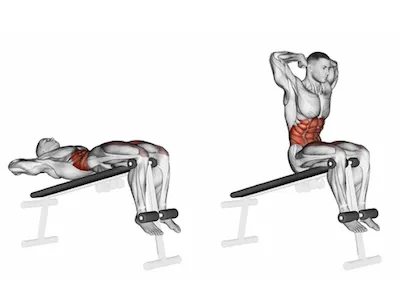
The foundational ab bench exercise that targets the entire rectus abdominis.
How to perform:
- Secure feet under the rollers, lying fully on your back
- Cross arms over chest or place fingertips behind ears (avoid pulling on neck)
- Engage core and curl up until torso is 45-60 degrees from the bench
- Slowly lower back down with control
- Perform 3 sets of 12-15 repetitions
Pro tip: For added difficulty, hold a weight plate against your chest or extend arms overhead during the movement.
2. Decline Russian Twists
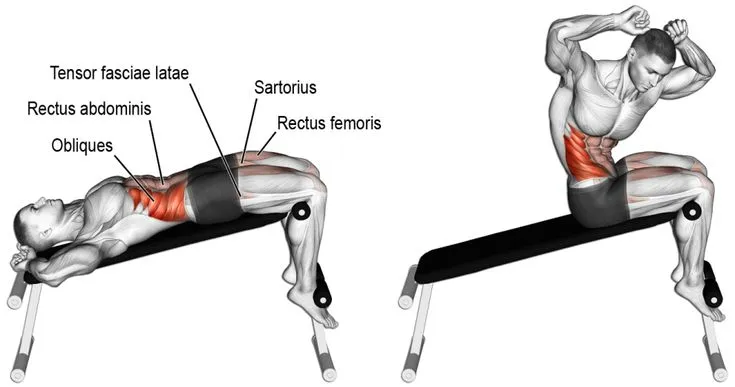
Excellent for targeting obliques and rotational strength.
How to perform:
- Secure feet and sit up so your torso forms approximately a 45-degree angle with the bench
- Clasp hands together or hold a medicine ball/weight plate
- Rotate torso fully to the right, then to the left (that’s one rep)
- Keep hips and legs stable throughout the movement
- Perform 3 sets of 10-12 rotations per side
3. Decline Reverse Crunches
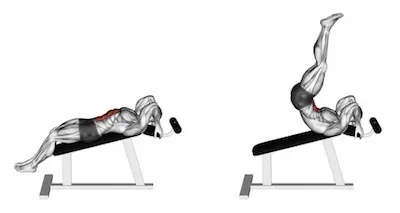
Targets the lower abdominals more intensely than standard crunches.
How to perform:
- Lie on your back on the bench with hands gripping the top edge
- Keep legs together with knees slightly bent
- Using lower abs, lift hips off the bench while bringing knees toward chest
- Lower legs back down with control without fully relaxing
- Perform 3 sets of 12-15 repetitions
4. Leg Raises on Ab Bench
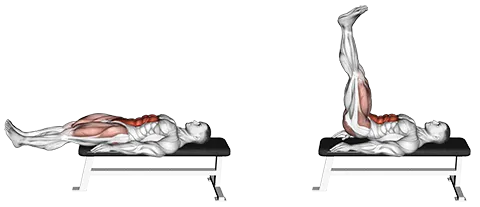
Another excellent lower ab developer that benefits from the declined position.
How to perform:
- Lie completely flat on the bench, gripping the top edge for stability
- Keep legs straight and together
- Raise legs upward until perpendicular to the floor (or higher if possible)
- Lower legs slowly without letting them touch the bench
- Perform 3 sets of 10-15 repetitions
5. Decline Oblique Crunches
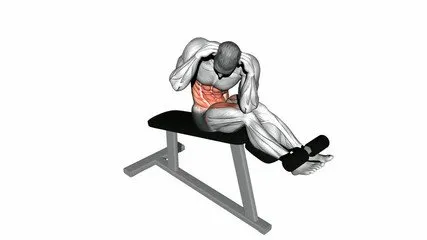
Isolates the oblique muscles for better definition.
How to perform:
- Lie on the bench with feet secured
- Place hands behind head with elbows wide
- Lift shoulders off the bench while rotating, bringing right elbow toward left knee
- Lower back down and repeat on the opposite side
- Perform 3 sets of 10-12 repetitions per side
Sample Ab Workout Bench Routine
For a complete ab bench workout, try this routine twice weekly:
| Exercise | Sets | Reps | Rest Between Sets |
| Decline Sit-Ups | 3 | 15 | 45 seconds |
| Decline Russian Twists | 3 | 12 per side | 45 seconds |
| Decline Reverse Crunches | 3 | 15 | 45 seconds |
| Leg Raises | 3 | 12 | 45 seconds |
| Decline Oblique Crunches | 2 | 12 per side | 45 seconds |
Complete all sets of one exercise before moving to the next, or perform as a circuit with minimal rest between exercises for added intensity.
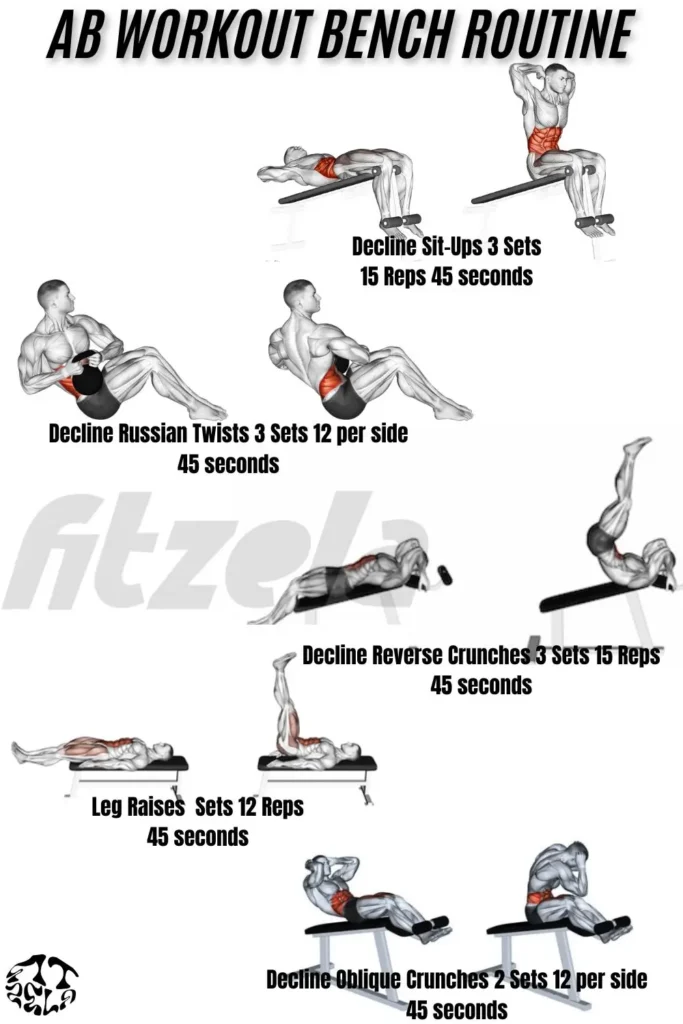
Tips for Using Your Ab Workout Bench Effectively
Proper Form is Essential
To maximize benefits and prevent injury:
- Avoid pulling on your neck during crunching movements
- Maintain control throughout the entire range of motion
- Focus on using abdominal muscles, not momentum
- Keep lower back pressed into the bench during appropriate exercises
- Breathe out during the exertion phase of each movement
“The most common mistake I see with ab bench work is rushing through repetitions. Slow, controlled movements with proper form will deliver far better results than fast, sloppy reps.” – Mark Peterson, NASM Certified Personal Trainer
Progressive Overload Principles
To continue seeing results:
- Increase decline angle as you get stronger
- Add weighted resistance (dumbbells, medicine balls, weight plates)
- Increase repetitions or sets over time
- Decrease rest periods between sets
- Incorporate advanced variations of basic movements
Frequency Recommendations
For optimal results without overtraining:
- Train abs 2-3 times per week with at least one day of rest between sessions
- Limit sessions to 10-15 minutes of focused work
- Include the ab bench as part of a comprehensive fitness program
- Allow adequate recovery time for muscles to repair and grow
Common Ab Workout Bench Mistakes to Avoid
Even the best ab workout bench won’t deliver results if you’re making these common errors:
Poor Bench Selection

- Choosing unstable equipment: Wobbly benches can cause injury and limit exercise effectiveness
- Inadequate padding: Insufficient cushioning leads to discomfort and shorter workouts
- Wrong angle range: Too steep for beginners or too shallow for advanced users
Improper Exercise Execution
- Using momentum: Swinging or jerking reduces muscle activation
- Pulling on the neck: Places strain on cervical spine instead of working abs
- Incomplete range of motion: Not fully engaging the abdominal muscles
- Training too frequently: Not allowing sufficient recovery time
Unrealistic Expectations
- Expecting spot reduction: Ab exercises strengthen muscles but don’t specifically burn belly fat
- Looking for immediate results: Core development takes consistent effort over time
- Relying solely on the bench: Not incorporating diet and other exercise types
Maintaining Your Ab Workout Bench
To ensure your investment lasts:
- Clean padded surfaces regularly with appropriate gym equipment cleaner
- Check and tighten all bolts and connections monthly
- Lubricate adjustment mechanisms as needed
- Store in a dry location when not in use
- Follow manufacturer weight limitations
Who Should Use an Ab Workout Bench?
While generally beneficial for most fitness enthusiasts, ab benches are particularly valuable for:
- Intermediate to advanced fitness levels: Those who’ve mastered basic floor exercises
- Home gym enthusiasts: Looking for space-efficient, versatile equipment
- Those with specific core goals: Athletes needing rotational strength or aesthetic-focused individuals
- People with adequate core strength: Beginners should master basic planks and floor exercises first
However, those with certain back conditions, recent abdominal surgery, or pregnancy should consult a healthcare provider before using an adjustable ab bench.
Complementary Equipment and Exercises
For a complete core routine, consider combining your ab bench workouts with:
- Stability ball exercises: For additional core stabilization work
- Resistance bands: To add variable resistance to bench exercises
- Medicine balls: For weighted Russian twists and other rotational movements
- Floor exercises: Planks and hollow holds for isometric strength
Conclusion: Maximizing Your Ab Bench Investment
An ab workout bench can be a valuable addition to your fitness equipment collection when chosen wisely and used correctly. The best ab workout bench for you will depend on your space constraints, budget, fitness level, and specific goals.
Remember that visible abs result from a combination of targeted strength training and reduced body fat percentage. Even the most effective ab bench exercises won’t reveal a six-pack without proper nutrition and overall body fat reduction.
By following the guidelines in this article, you’ll be well-equipped to select an appropriate adjustable ab bench and use it effectively to strengthen, tone, and define your core muscles. Combine consistent training with proper recovery and nutrition for the best possible results.


